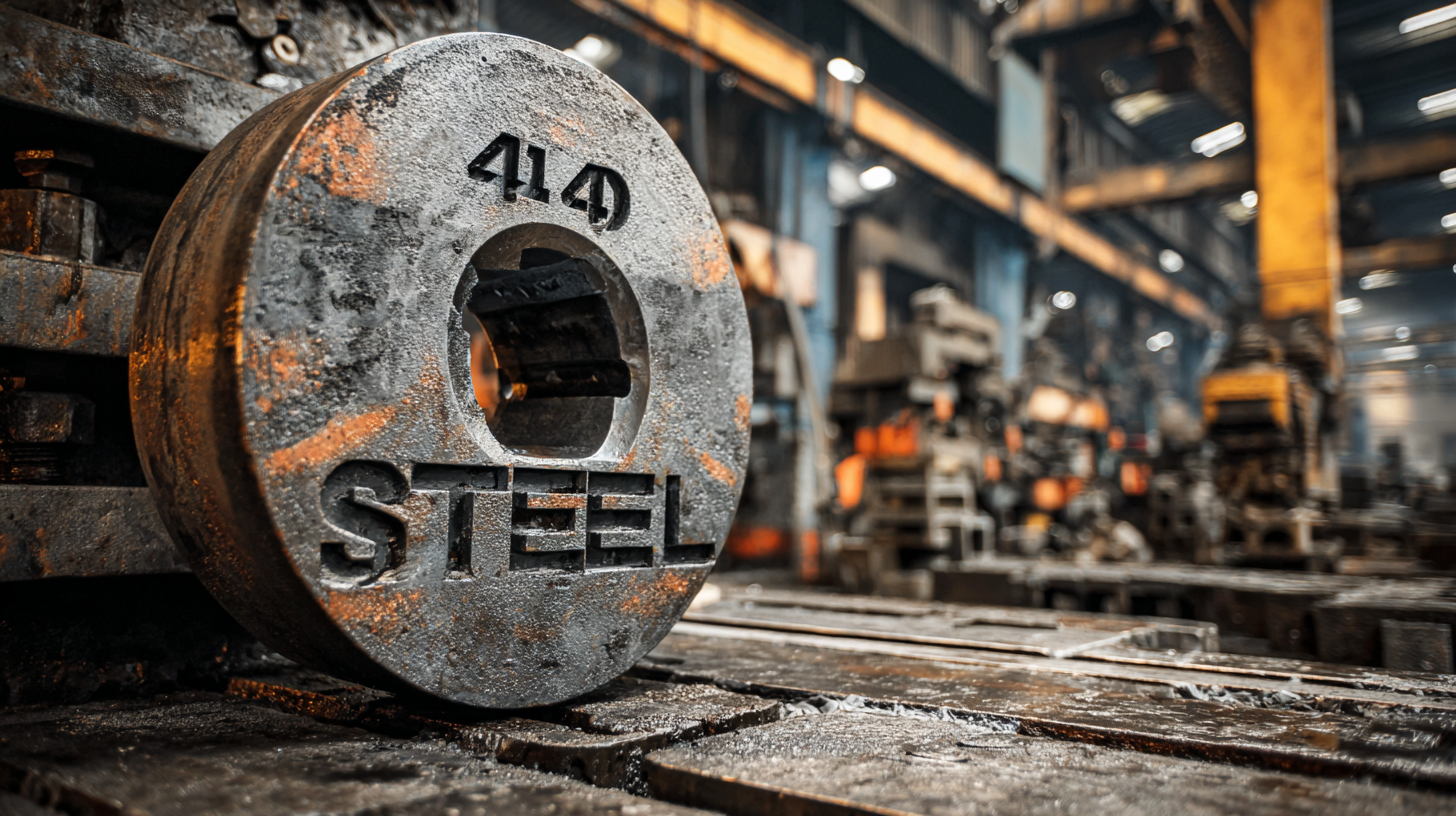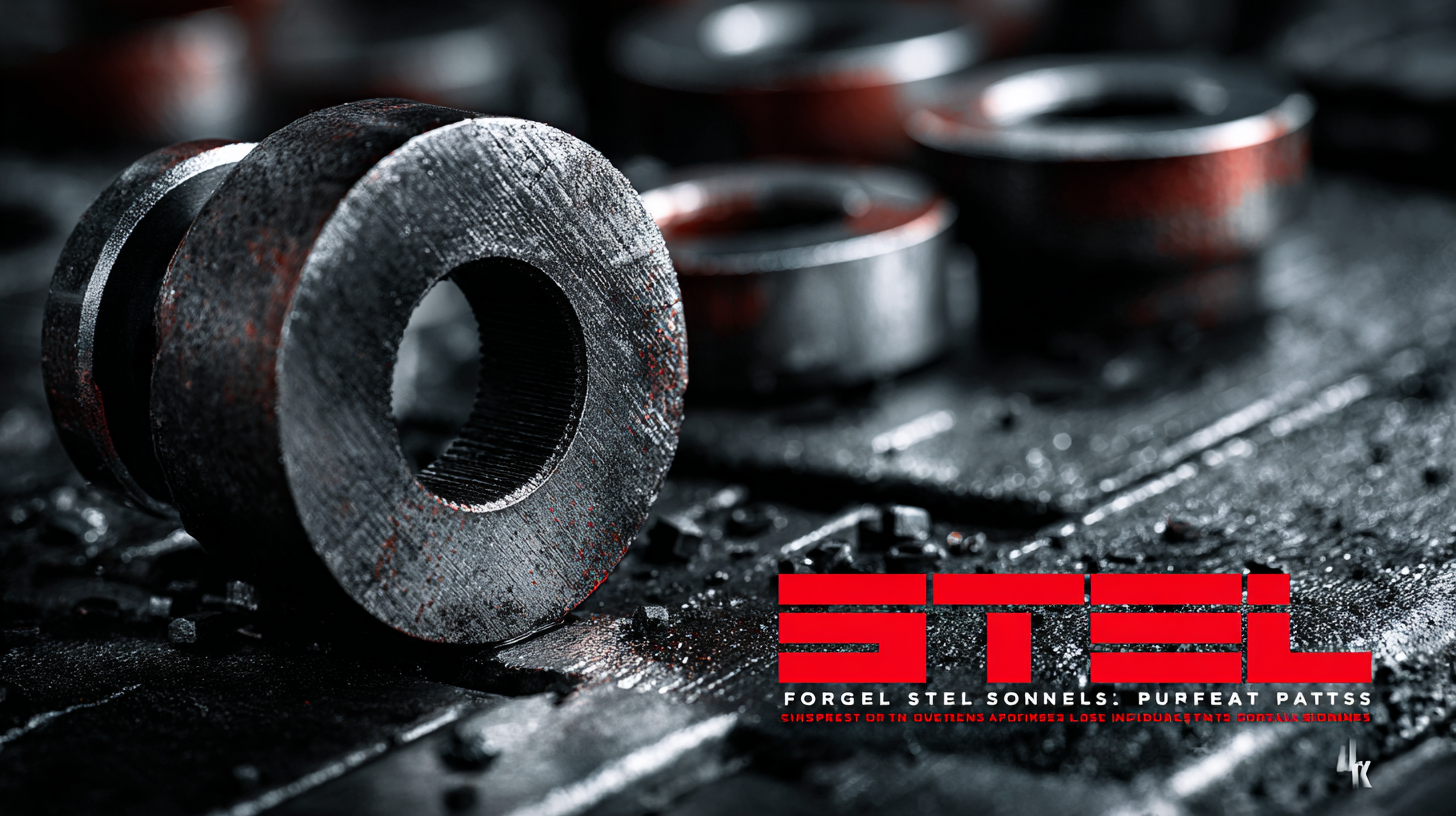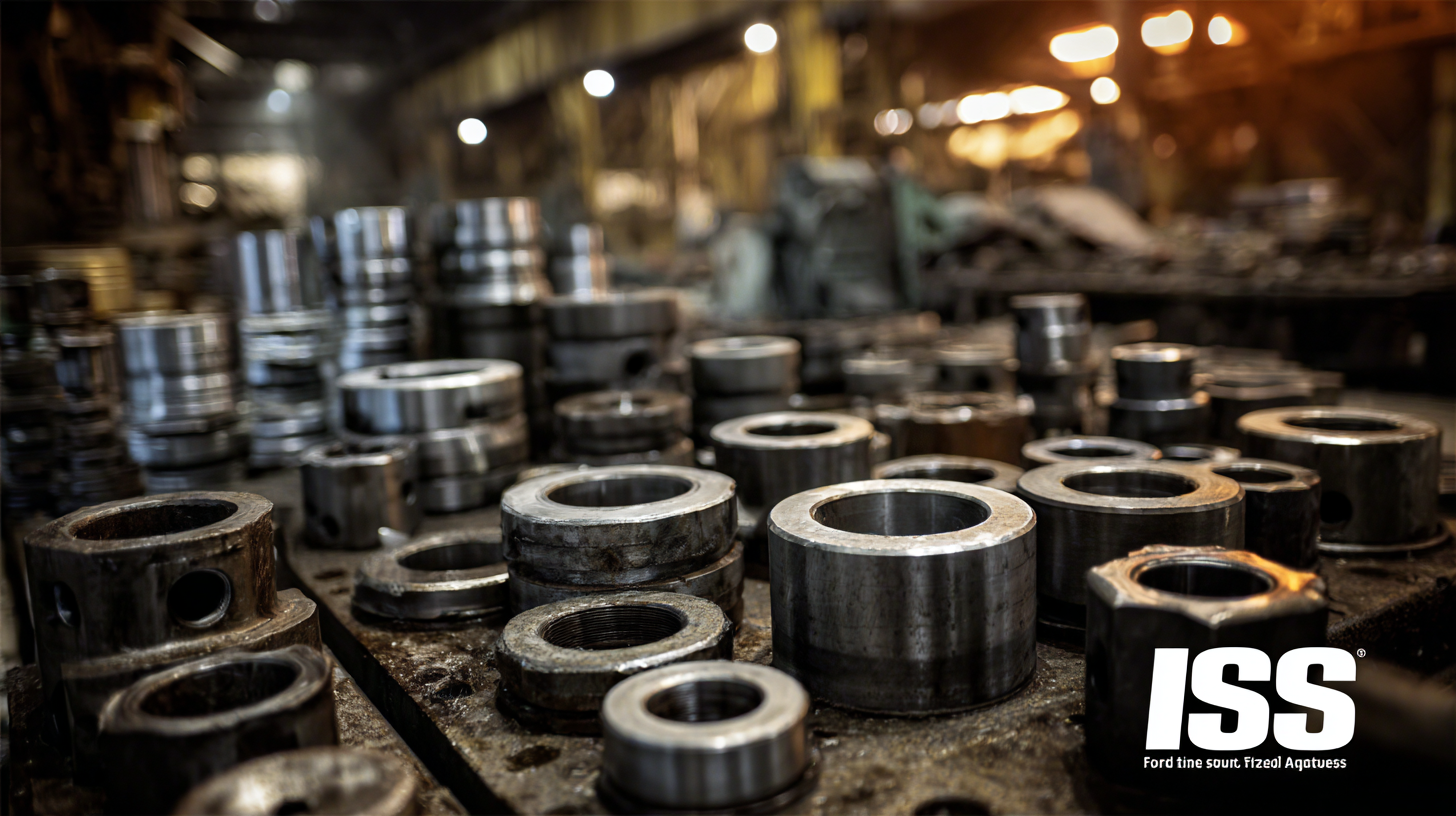Leave Your Message
-
Phone
-
E-mail
In today's competitive industrial landscape, the demand for high-quality forged steel parts has surged, as these components are critical for enhancing the durability and performance of various machinery and equipment. However, global sourcing of these essential parts presents a myriad of challenges, including fluctuating market conditions, inconsistent quality standards, and the complexities of international logistics. As industries strive to optimize their supply chains while ensuring the highest quality, finding reliable suppliers who can deliver top-tier forged steel parts becomes paramount. This blog delves into the challenges faced in the global sourcing landscape and presents innovative solutions to mitigate these issues, ultimately guiding manufacturers towards securing the best forged steel parts for their industrial applications.

Global sourcing of forged steel parts presents a myriad of challenges that can significantly impact production efficiency and product quality. One of the key challenges is the geographical disparity in manufacturing capabilities. Different regions offer varying levels of technological advancement and workforce expertise, which can lead to inconsistencies in product quality. Companies must carefully assess potential suppliers and their capabilities to ensure that the forged steel parts meet stringent industrial standards, thus requiring a thorough evaluation process that can be both time-consuming and costly.
Another significant challenge is navigating the complex landscape of international trade regulations and tariffs. Fluctuating trade policies can alter cost structures and impact the availability of materials, making it essential for companies to remain agile and responsive to changes. Additionally, language barriers and cultural differences can complicate communication and collaboration with overseas suppliers, potentially leading to misunderstandings and delays. To mitigate these challenges, businesses must invest in robust supply chain management strategies and foster strong relationships with reliable partners to ensure a steady flow of high-quality forged steel parts essential for their industrial applications.

In the global industrial landscape, ensuring the quality of forged steel components is paramount, especially given their critical roles in manufacturing and construction. Standards and certifications not only enhance the reliability of these parts but also streamline sourcing processes across international borders. According to the World Steel Association, the global demand for forged steel is projected to reach approximately 100 million metric tons by 2025, underscoring the importance of stringent quality controls in production.
Evaluating quality standards such as ISO 9001 and ASTM A forging specifications is essential for manufacturers and suppliers alike. These certifications not only provide guidelines for the production process but also establish benchmarks for performance and durability. A recent report by Market Research Future highlights that over 60% of companies prioritize supplier certification when selecting partners for sourcing forged steel components, reflecting a growing emphasis on quality assurance. As industries increasingly adopt advanced technologies like AI and IoT for monitoring production quality, ensuring compliance with these standards will be critical to meeting both safety regulations and customer expectations.
| Dimension | Challenge | Quality Standard/Certification | Region |
|---|---|---|---|
| Material Properties | Variability in chemical composition across suppliers | ISO 9001 Quality Management | Asia |
| Dimensional Tolerances | Inconsistencies in forging dimensions | AS9100 Aerospace Standard | North America |
| Heat Treatment Processes | Lack of uniform heat treatment across suppliers | ISO/TS 16949 Automotive Quality | Europe |
| Corrosion Resistance | Differences in surface treatments | Mil-Spec for Military Applications | Middle East |
| Delivery Timelines | Unpredictable shipping and lead times | ISO 14001 Environmental Management | South America |
In the complex landscape of global sourcing, effective supplier relationship management stands as a cornerstone for securing high-quality forged steel parts essential for industrial applications. Building strong relationships begins with clear communication, ensuring that expectations are set and understood from the outset. This involves not only regular updates and feedback but also fostering an environment where suppliers feel valued and included in the decision-making process. By implementing collaborative strategies, companies can enhance supplier performance and drive innovation, ultimately leading to better product outcomes.
Additionally, establishing a robust framework for assessing supplier capabilities and risks is crucial. Companies should conduct thorough evaluations that encompass quality audits, financial stability assessments, and compliance checks. By investing time in these assessments, organizations can identify potential issues early and work collaboratively with suppliers to address them. Leveraging digital tools for real-time data sharing and performance tracking can further strengthen these relationships, enabling both parties to respond swiftly to market changes and demands, and facilitating a more resilient supply chain.

In today’s competitive landscape, navigating logistical hurdles in the global supply chain for forged steel parts remains a significant challenge for many manufacturers. Recent industry reports indicate that over 60% of companies face difficulties in sourcing high-quality forged steel components due to disruptions in transportation and rising costs. These issues are exacerbated by inconsistent material availability and varying quality standards across different regions, leading to further complexities in maintaining production schedules.
Meyer Tool's experience in overcoming these barriers presents a compelling case study. The company’s ability to manage end-to-end manufacturing processes—from machining to coating and final assembly—enables them to mitigate some of these logistical challenges effectively. By optimizing their supply chain and leveraging local partnerships, Meyer Tool has demonstrated that strategic collaboration can facilitate smoother operations, even in the face of external pressures. Industry experts have noted that adopting such agile practices can significantly reduce lead times and improve overall supply chain resilience, ultimately allowing firms to maintain their competitive edge in the ever-evolving industrial market.
In today's competitive industrial landscape,
leveraging technology
is critical for optimizing the sourcing of forged steel parts.
Traditional methods of procurement can often be hindered by inefficiencies and delays, impacting production timelines.
Advanced technologies such as
artificial intelligence and machine learning can significantly streamline sourcing processes.
By utilizing these tools, companies can analyze vast amounts of data to identify reliable suppliers, assess their capabilities,
and evaluate the quality of their products more effectively.
Moreover, digital platforms enable real-time communication and collaboration between manufacturers and suppliers.
This fosters transparency and allows for quicker decision-making, ensuring that industrial operations are not held up due to sourcing delays.
Additionally, technologies like
blockchain
can enhance traceability in the supply chain, helping businesses verify the authenticity of forged steel components
and their compliance with industry standards. As industries continue to evolve, integrating technology in the sourcing of forged steel parts
will play a pivotal role in achieving operational excellence and maintaining a
competitive edge.
